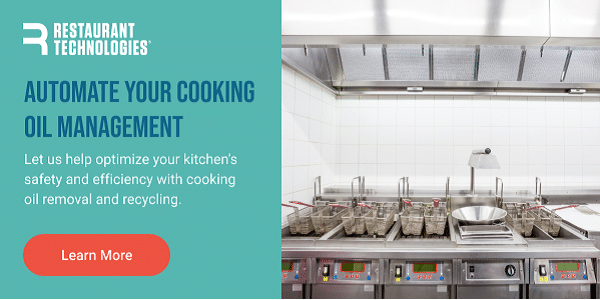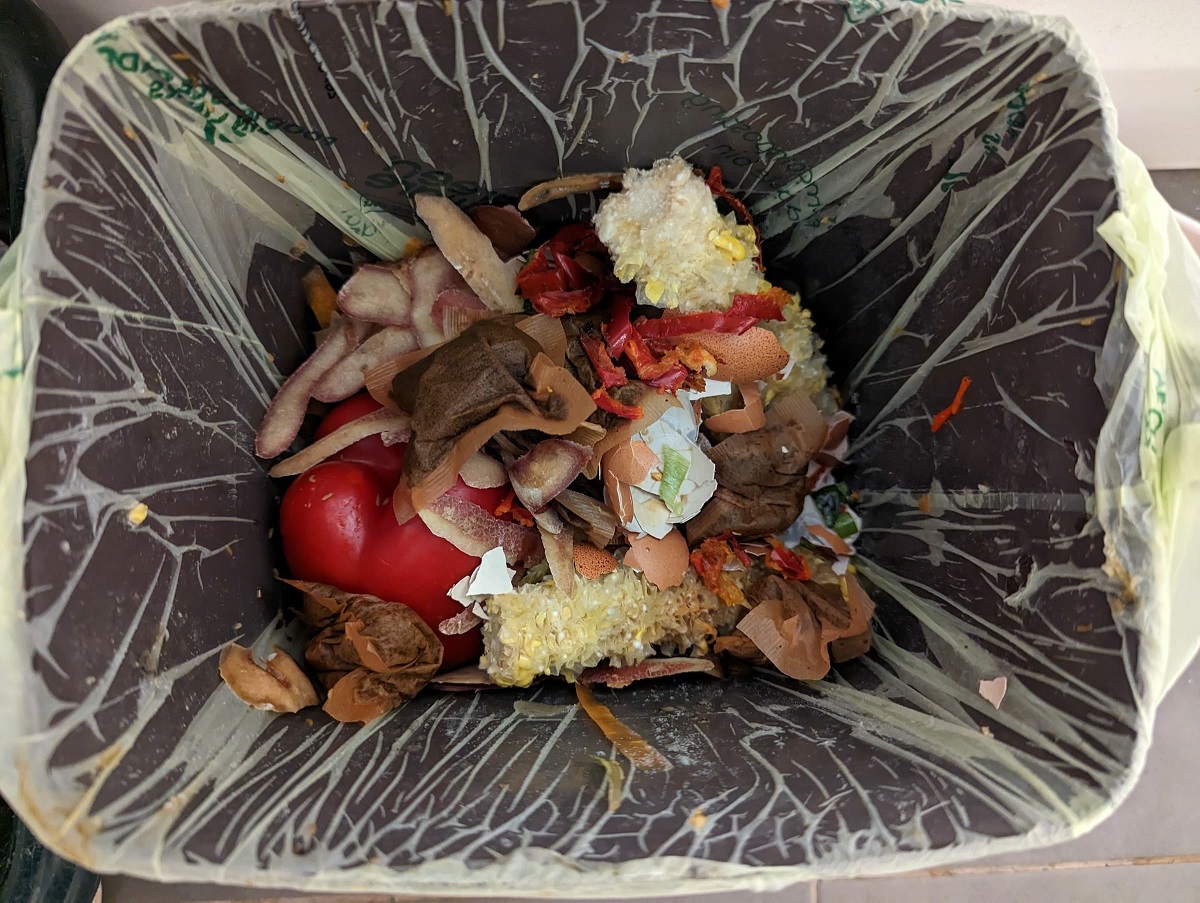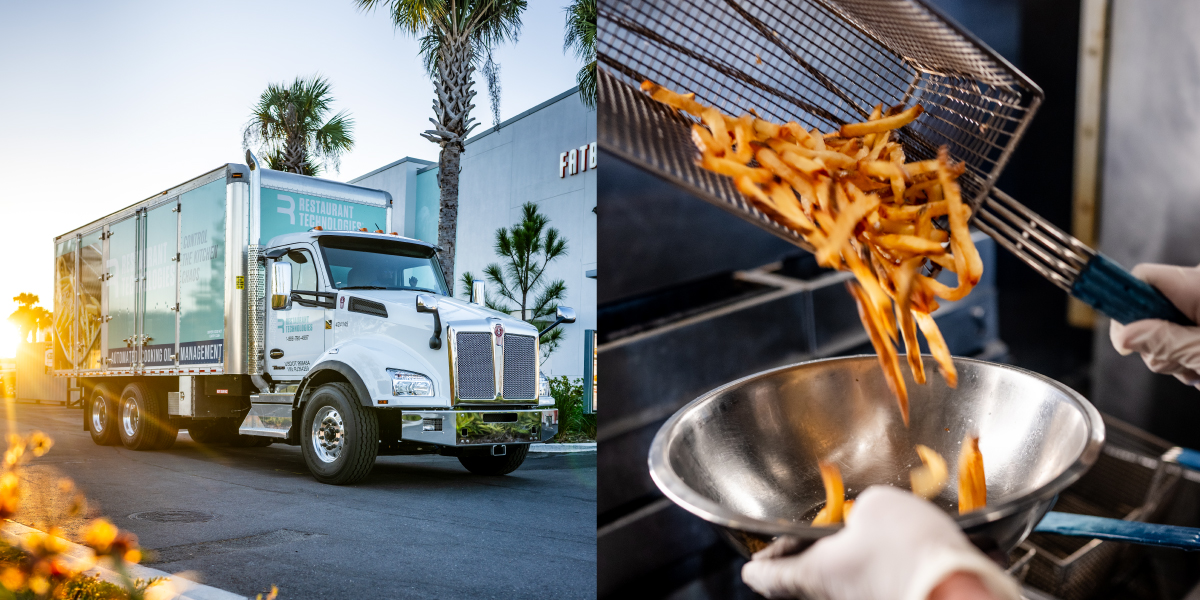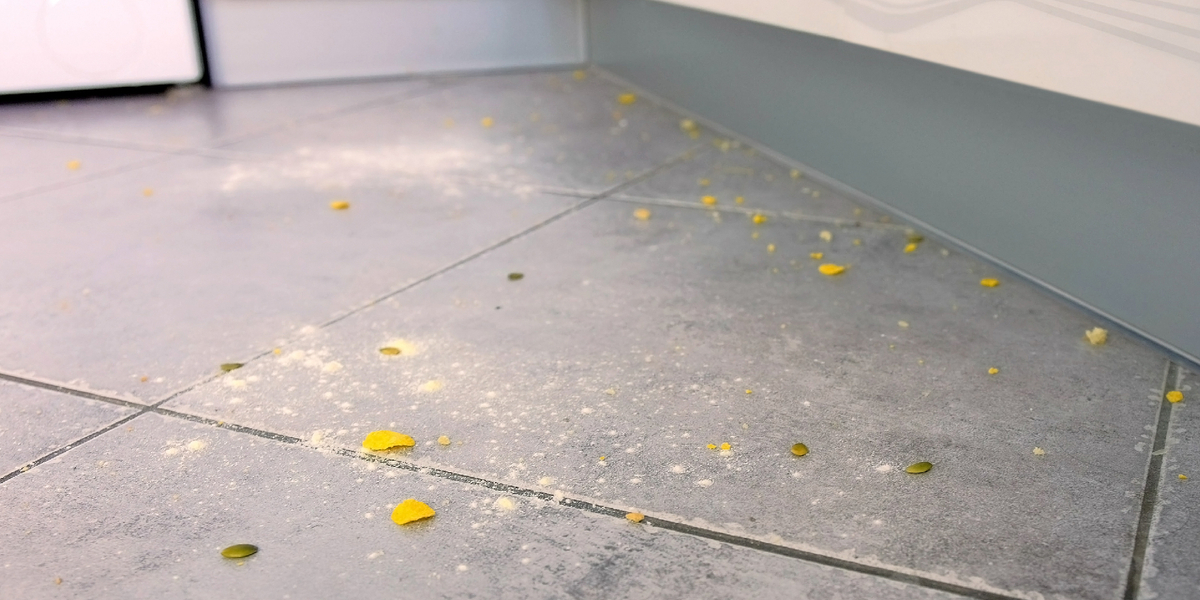From the intoxicating aroma of sizzling garlic to the buttery scent of freshly baked bread, your restaurant’s odors can serve as a strategic tool for enticing customers to your doors.1
But odors can just as easily repel patrons—or send them straight to Yelp to write a scathing review. Rancid cooking oil, chemical cleaners, and other foul smells can ruin your customers’ experience, put off your employees, and take a major toll on your reputation.2 In fact, research shows that smells can trigger powerful emotions and memories, which, for a restaurant that emits an unpleasant odor, can lead to a huge dip in return visits and sales.3
Fortunately, eliminating your bad odor problem is possible.
Whether your restaurant smells like sewage or spoiled milk, we have the solutions you need to transform your eatery into an olfactory haven.
Why are Restaurant Odors Important?
Chances are, you’ve heard of “scent marketing,” or the concept of luring in customers through the use of tantalizing natural and artificial scents.4
How does it work?
Basically, scent may:
- Stimulate appetite
- Stick in our memories and create positive associations with a specific restaurant or dish
- Influence the taste of food
- Enhance a restaurant’s ambiance
- Elevate a meal
- Boost revenue
The opposite, however, also holds true. Here are the most common restaurant odor culprits and how to send them packing.

1. Grease and Oil Buildup
Cooking oil is likely a mainstay in your kitchen. After all, it’s the substance that makes everything from crab cakes to sliders possible. But given that restaurants go through an average of 35 gallons of cooking oil per day, it can accumulate quickly and fill your venue with the decidedly unpleasant smell of stale, funky grease.5 Furthermore, improper handling and storage can lead to cooking oil contamination, which further impacts the quality and safety of your food.
The Solution
In addition to routine cleaning and mopping up spills immediately after they happen, you may want to consider the value of professional oil management and automated hood and flue cleaning.
The former provides everything you need to keep your cooking oil fresh and delicious, including delivery, storage, monitoring, filtering, removal, and recycling. Meanwhile, Restaurant Technologies’ AutoMist can:
- Prevent and remove grease buildup that can contribute to off-putting “old oil” odors
- Stamp out the need for third-party hood cleanings
- Protect your kitchen from fires
The Total Oil Management Solution can help with outdoor odors as well (and pests) because our used oil goes in a sealed off containment tank. In contrast, other outdoor grease bins and tanks can get ripe and their container lids often have a less than perfect seal.
Above all, the hands-off nature of automated oil management may provide you with the best gift of all: peace of mind. For comprehensive services for restaurants, Restaurant Technologies ensures your kitchen runs smoothly, safely, and efficiently.
2. Burnt Food Residue
Burnt food is an unfortunate reality in thriving, busy eateries. Other times, your chef may intentionally burn food: to char the edges of a sirloin, perhaps, or to caramelize a brulee. And while the scent of browning or even burnt food may be appealing to some, it can affect the flavor of your food and distract (if not outright bother) your patrons.6
The Solution
Unless a certain dish needs to be burnt to achieve a specific texture or flavor, your best bet is to try to avoid burning food in the first place—a task that can be accomplished in any number of ways, from hiring more cooks to spacing out your seating and orders.
If a burn does occur, though, follow these steps7:
- Toss the burnt food right away
- Clean up the area and cookware with baking soda (a nearly magical foul odor eliminator)
- Simmer white vinegar, which acts to neutralize smells
Additionally, you may want to install an ionization unit (which soaks up sewer smell through the process of oxidation) and, with the exception of your servers’ comings and goings, keep the doors to your kitchen closed: they function as a shield between BOH smells and the FOH experience.8 Implementing effective commercial cooking oil management can also help reduce the risk of burnt food, ensuring your kitchen runs smoothly and your dishes maintain their intended flavors.
3. Drain and Sewage Odors
The smells of burnt food and “retired” cooking oil may be somewhat expected in restaurants, especially QSRs at the peak of a rush. Drain or sewage odor, however? Not so much.
In fact, both may compel customers to leave immediately (and potentially never return).
If your restaurant smells like sewage, it’s likely the consequence of gasses that contain chemical compounds such as9:
- Ammonia
- Carbon dioxide
- Methane
- Hydrogen
- Hydrogen sulfide
- Nitrogen
The reasons for these gasses getting trapped in your facility can vary. It could be due to a crack in your drain line, which can release sewage in or under your restaurant. Blocked vents in your plumbing, a dry trap, and clogged drains are three other possible causes.
The Solution
Call a reputable plumber stat. Not only are drain and sewage odors revolting to many, but exposure to sewer gas can also trigger a host of health issues, including10:
- Fatigue
- Nausea
- Dizziness
Further, be sure to check your dishwasher (or have a professional do so): Commercial dishwashers deal with a ton of food scraps and other debris, which can do a number on their drains and lead to that icky, sulfur-heavy sewer smell.11
4. Garbage and Rotten Food
The National Restaurant Association asserts that restaurants generate between 22 and 33 billion pounds of food waste annually.12 Bread that has gone bad, veggies past their expiration date, and that half-eaten lamb shank on your guest’s plate can merge together, smell-wise, and switch off an appetite like few other things. And even though summer may be one of your busiest seasons, the smell of rubbish skyrockets in sunny weather. Why?
Heat breaks down garbage faster.13
The Solution
Your first order of business? Investing in professional waste management services. Quality companies offer on-demand pick-up, as well as recycling and composting.14
Further:
- Keep the trash bins throughout your restaurant clean
- Ensure your dumpster is far enough away from your front and back doors
- Implement a first-in, first-out approach to perishable foods
- Maintain your food inventory to avoid spoilage (and cut down on costs)
Two additional ways to eliminate stenches are to install carbon filters, which have the ability to absorb the bad smell, and level up your venue’s ventilation.
Create a Welcoming Environment with Restaurant Technologies
The scents your restaurant emits can make or break your business. Tempting aromas—from a tomato sauce simmering on the stove to an apple pie browning in the oven—can take a dinner from ho-hum to heavenly. Meanwhile, noxious odors can send potential diners directly to the cafe next door.
Restaurant Technologies helps ensure your guests stay right where you want them. We offer a suite of commercial cooking oil management solutions to keep your kitchen clean and free of that acrid, old grease odor. In turn, your guests can relish the aromas of your chef’s culinary creations and associate your eatery with nothing but pleasantness.
Enjoy success by partnering with Restaurant Technologies.
Sources:
- Scent Air. Scent marketing for restaurants. https://scentair.com/restaurants
- Air-Scent International. A complete guide to odor control in commercial environments. https://www.airscent.com/a-complete-guide-to-neutralizing-odors-in-commercial-environments
- Henry Ford Health. Why smell is important—the role your nose has in making decisions. https://www.henryford.com/blog/2021/08/why-smell-is-important
- Mad Mobile. What is scent marketing for restaurants? https://madmobile.com/blog/scent-marketing-for-restaurants
- NW Biofuel. How is used restaurant oil recycled? https://nwbiofuel.com/how-is-used-restaurant-cooking-oil-recycled
- Epicurious. This is why some people purposefully burn their food. https://www.epicurious.com/expert-advice/why-people-purposefully-burn-food-article
- The Kitchn. 9 ways to get burnt food smells out of your kitchen. https://www.thekitchn.com/burnt-food-smells-out-of-your-kitchen-beyond-just-opening-a-window-23466873
- Service Master Restore. Tips for restaurants to remove frying oil smoke and odors. https://www.servicemastersanfrancisco.com/tips-to-remove-restaurant-frying-oil-smoke
- Sunburst Environmental. What facility managers should know about sewer odors. https://sunburstev.com/what-facility-managers-should-know-about-sewer-odors/
- HRS Restoration Services. Sewer gas poisoning symptoms. https://www.hrsrs.com/blog/can-sewer-gas-make-you-sick
- ZoomDrain. What is causing terrible odors in my restaurant’s kitchen? https://www.zoomdrain.com/blog/2023/march/what-is-causing-terrible-odors-in-my-restaurant-
- Move for Hunger. Beyond the menu: food waste in America’s restaurant industry. https://moveforhunger.org/blog/beyond-menu-food-waste-americas-restaurant-industry
- Restaurant Business. Oh, that smell. https://www.restaurantbusinessonline.com/oh-smell
- Waste Away Systems. Restaurant waste disposal: how to set up your restaurant’s waste management plan. https://www.wasteawaysystems.com/blog/restaurant-waste-disposal-how-to-set-up-your-restaurants-waste-management-plan






